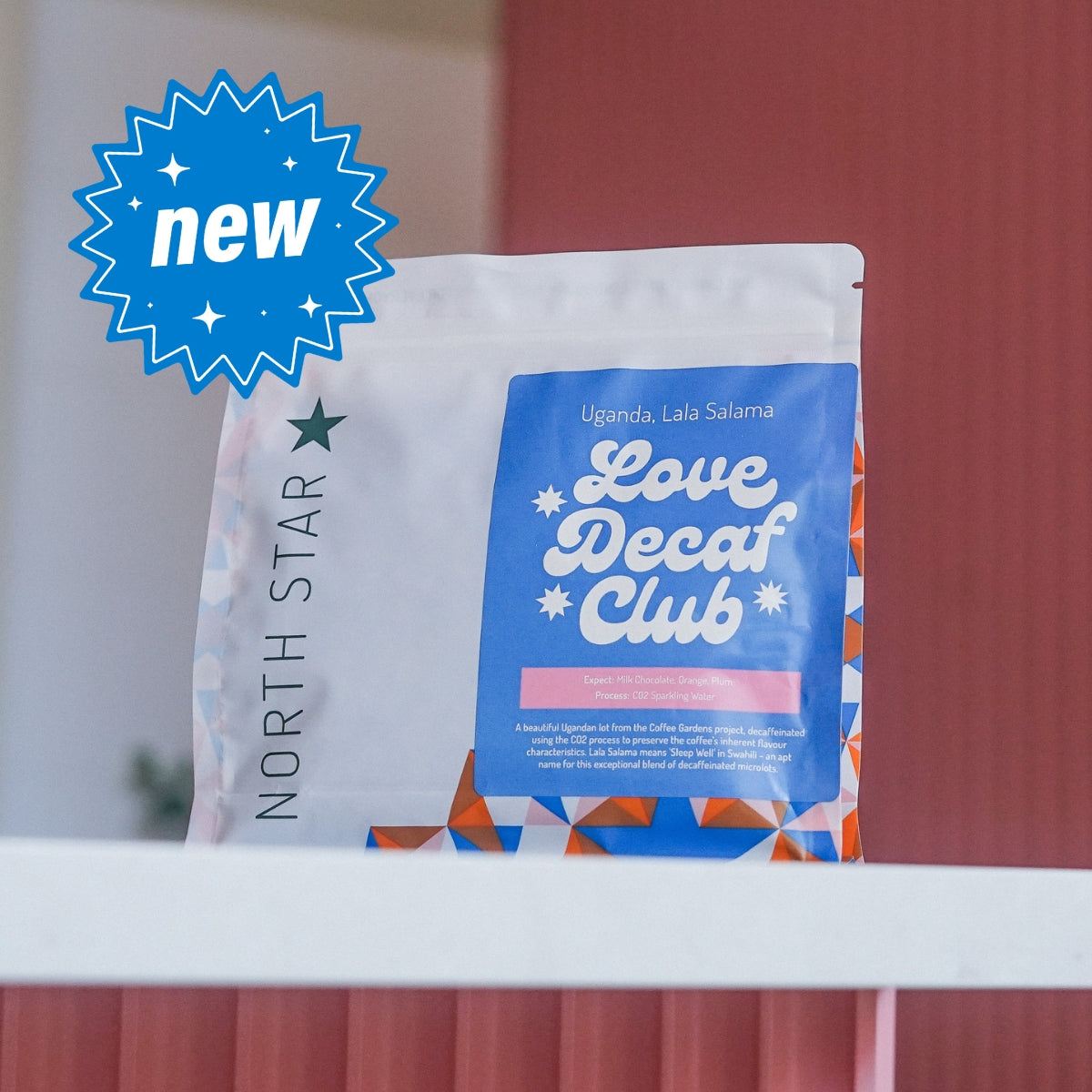Decaf Uganda Lala Salama CO2
- Description
- Bean Info
- Brewing Suggestion
A beautiful Ugandan lot from the Coffee Gardens project, decaffeinated using the CO2 process to preserve the coffee's inherent flavour characteristics. Lala Salama means 'Sleep Well' in Swahili - an apt name for this exceptional blend of decaffeinated microlots.
Expect: Milk Chocolate, Orange, Plum
Enjoy: With or Without Milk
Process: CO2 Decaf
Uganda Lala Salama CO2 Decaf
This Coffee's Story
Shipping Info
Delivery Times
Once you have placed your order, you will receive an email to confirm it is being processed and then another one to let you know when it has been dispatched.
If you place your order before 12pm, we'll dispatch it the same working day! All orders are shipped with DPD next working day delivery as standard. Fully tracked delivery, with a one hour delivery window and real time delivery updates.
DPD offers the ability to change delivery address and date, opt for delivery to a neighbour or safe place, or redirect to a DPD Pickup shop, all while it's on the way to you! DPD aim to be the UK's most sustainable delivery company.
Operating times are 9am-5pm Mon-Friday. Orders placed after 12pm on Friday will not be processed until 9am Monday morning.
Local Pick Ups
Local pickups take place from the Roastery on Tong Road. Please note our shutter doors will be down for security and temperature reasons but we are always in Monday-Friday between 9 and 5pm – just ring the doorbell on arrival
Packaging Info
Letterbox Friendly
If you order 1-2 x 250g bags of coffee, they will be sent in a letterbox friendly package so that you do not need to be in to take receipt of your coffee.
100% Home Compostable
Our 250g bags are 100% home compostable including the valve, seal and sticker! They will degrade in 6 months in a well managed home compost.
1kg Recyclable LDPE 4
Our 1kg bags are currently in LDPE plastic - some councils will recycle this for you, if you are unsure simply take it to your local supermarket with your other plastic packaging.






